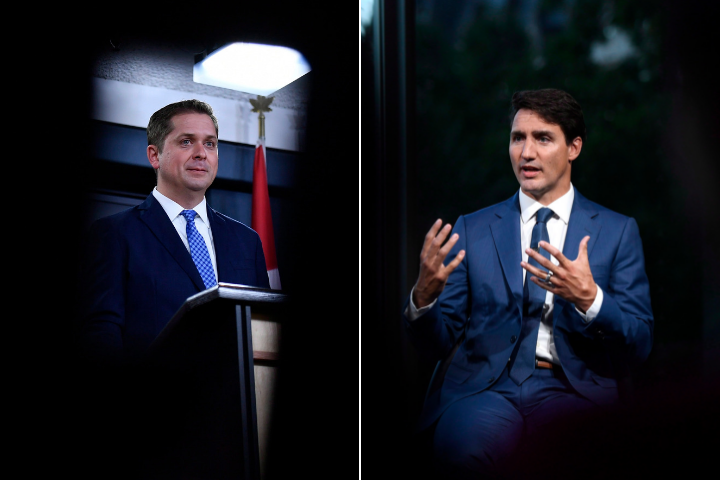A growing number of Canadians are ready for a leader that is willing to break the rules, according to a recent poll conducted by Ipsos.

The organization’s “Beyond Populism? Revisited” poll asked residents of 26 countries about their trust in leaders, institutions and their views on how their nation should move forward.
It found that 52 per cent of people around the world want a “strong leader” for their country, specifically one who is willing to break the rules when needed.
READ MORE: Ontario’s appeal court sides with Ford government, paves way for 25-ward Toronto election
In Canada, 46 per cent said they want a leader who is open to skirting rules. That’s an increase of five per cent over the results of the same survey conducted in 2016.
Ipsos vice-president Sean Simpson explained to Global News much of that is because people are losing faith in traditional leaders and political parties.
“If people are losing faith in the establishment, then the perceived antidote to that is taking a leader who is anti-establishment, and therefore populist, and putting them in charge,” Simpson said.
He cited several examples of such politicians in Canada, including Ontario Premier Doug Ford and his brother, former Toronto mayor Rob Ford.
“That’s why in Ontario we have Doug Ford, and he’s emboldened to call out the court and to use the notwithstanding clause,” he said, noting the premier’s latest move in cutting down Toronto city council’s size.
WATCH: Ipsos poll gauges how Canadian’s reactions to Doug Ford’s use of the notwithstanding clause

“That’s what his base and a significant number of people in the province want — somebody who will challenge institutions and mix things up.”
While Canadians seem more open to an unconventional leader who may break rules, approval of leaders who are outspoken tumbled in the country.

Get daily National news
Fifty-one per cent of Canadians said they support politicians who “say what’s on their mind regardless of what anyone else thinks.” In 2016, support for that kind of attitude was higher at 57 per cent.
“In Canada, we still respect civility and decorum,” Simpson said.
“Let’s call it organized chaos. If we’re going to throw a grenade in the system and elect somebody who will break the rules, you still need to be mindful of the civility and decorum of Canadians.”
LISTEN: Sean Simpson of Ipsos joins Danielle Smith to discuss the poll “Beyond Populism, Revisited”
When it comes to federal politics, Simpson said that could be Conservative Leader Andrew Scheer, who will try to appeal to populist voters when campaigning for the 2019 election.
That would especially be the case, as the Tories try to prevent the party’s support from migrating over to Maxime Bernier’s new party, Simpson explained.
WATCH: Maxime Bernier announces formation of People’s Party of Canada

Interestingly, only 19 per cent of Canadian respondents said the country should “stick to parties and leaders who have been in power before.”
The survey also found a growing number of Canadian respondents believe the country needs to “take more steps to protect itself from today’s world.” Thirty-seven per cent of Canadians backed more protection, while 24 per cent said Canada needs to “open itself up” to the world.
Internationally, Canadians were among the most likely to want more protection. Only Australians (at 40 per cent) backed protection more than Canada.
ANALYSIS: Is populism the new norm in Canada?
Many may have assumed that protectionism sentiment in Canada is due to U.S. president Donald Trump’s repeated “America First” calls, but Simpson said that may be too simplistic an approach.
“We can’t blame everything on Donald Trump,” he said. “These populist, anti-establishment sentiments have been brewing now for the better part of a decade.”
This Ipsos poll was an online survey of 17,203 people from across 26 countries between June 26 and July 9, 2018. Between 500 and 1000+ individuals participated on a country by country basis via the Ipsos Online Panel. The sample size was 1000+ for Canada. The precision of Ipsos online polls is calculated using a credibility interval. Polls of 1,000 people are considered accurate plus or minus 3.5 percentage points. Polls of 500 people are considered accurate plus or minus 5 percentage points.








Comments
Want to discuss? Please read our Commenting Policy first.